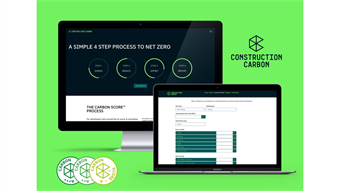Real estate crowd-investing: big investors are beginning to take notice
- In PropTech
- 13:47, 07 June 2019
- 5511 Views

Crowd-investing in real estate is growing fast – and incumbent players are taking notice.
Crowd-investing in real estate is growing fast – and incumbent players are taking notice. German asset manager Commerz Real, part of the Commerzbank Group, recently took a stake in crowd-investing platform Bergfürst – perhaps the first time an incumbent player did so. Founder Guido Sandler was not surprised.
When he founded crowd-funding platform Bergfürst in 2012, together with his associate Dennis Bemmann, Guido Sandler initially planned to focus on startup companies rather than real estate. “But we discovered that investors did not want to be too closely involved with the companies. So then we switched to property. That turned out to be a good move.”
So good, that the big German asset and investment manager Commerz Real decided in April 2019 to buy a 24.0% stake in Bergfürst. Sandler believes it may well be the first time that a big investor is buying into a crowd-investing platform in Europe.
Commerz Real will help Bergfürst expand internationally, says Sandler. At present, it is possible to invest through the platform in Germany, in Austria and Spain, but Sandler says he “would love to get projects from everywhere in the world. That’s where Commerz Real will be of value to us. We are one of the few internationally operating platforms.”
Bergfürst has already attracted more than 37,500 investors and over €61 million in invested capital, plus €13.6 million in repaid capital, including interest. These may not be sums that will impress the real estate market – but they are growing (Sandler expects volumes to triple in 2019), and Bergfürst is only one platform among many. The German real estate crowdfunding market, moreover, is still at an early stage compared to the UK and the US.
Bergfürst has no shortage of projects. “Project developers approach us directly. Especially mid-sized developers, who often do 3 or 4 projects per year with us. Their financial advisors fully understand what we do. They are important multipliers for us.” For instance, a developer for the Marriott hotel group in Germany did three projects through Bergfürst. “With their own resources they could only have done one.”
The types of projects on offer vary widely: residential, commercial, big cities, small cities. The average size of a project is around €1.5 million. Investors are paid between 5 and 7.5 % interest on an annual basis, paid semi-annually. In most cases the crowd-investors supply 25% of the capital of a project, the bank 70%. 5% equity is supplied by the developer. “What you buy”, says Sandler, “is in effect a bank loan, not equity.”
How does Bergfürst evaluate its projects? Sandler: “We have our protocols. And we put all the information we believe is needed for an investment decision on the website. But we can’t recommend projects to investors. That’s not allowed under the law, then we would fall under a wholly different regulatory regime.”
A new market of which Sandler has high expectations is the refinancing market. “When the value of a project goes up, people want to get access to the capital in it. This market has a totally different risk profile. There is no construction risk, no marketing risk.”
Investors typically get their invested capital back after 1.5 years, but Bergfürst also offers a secondary market on its platform, where people can sell their investments. This is a great success, notes Sandler. “95% of the offers on the secondary market are settled within a week.”
Investors do run a risk: if the project goes bankrupt, they could lose their money. That has never happened yet. What if the real estate market took a downward turn? “Prices would have to come down 25-30% before my investors are harmed”, says Sandler. “I don’t see that happening. I don’t see a bubble in the German market.”
HIGHLIGHTS
What Commerz Real sees in Bergfürst
Commerz Real is perhaps the first big institutional investor in Europe to take a stake in a crowd-investing platform. The participation in Bergfürst fits in with the digitalisation strategy followed by Commerz Real, explains Florian Stadlbauer, Head of Digitalization at Commerz Real: “We see the current digital transformation as a new industrial revolution that will change how the economy and society are organised. That’s why we invest in new business models to help us manage this transformation.”
Stadlbauer views the crowd-investing platform mainly as “complementary” to the existing investment activities of Commerz Real, he says. At the same time, “crowd-investing platforms might change our existing relations with our customers. Until now we were only able to offer them portfolios. Now they can also select individual projects.” He does not rule out that the integration of Bergfürst with Commerz Real could lead to new products being developed or that projects offered on the platform will in future be included in the portfolios.
Of course Commerz Real will also be able to be of value to Bergfürst. “We can help them grow internationally. And to deepen their understanding of the real estate market. And not to forget: our transaction team receives many real estate offers which could also be of interest for Bergfürst.”
HIGHLIGHTS
“Dutch real estate crowd funding market is booming”
Freek Geurtsen, one of the three founders of leading Dutch real estate crowd-investing platform Crowdrealestate (www.crowdrealestate.com), says that the Dutch market is growing very fast. “In the first quarter of 2019, growth has been 70% compared to the year before. In a few years we expect that more than €1 billion per year will be invested in the Dutch crowd-investing market.”
Geurtsen notes that the time for projects to become fully subscribed is getting shorter all the time. “Projects are regularly oversubscribed within hours on our platform. And the amounts are going up.”
The average project size on Crowd Real Estate is around €800,000. Like the Bergfürst platform, Crowdrealestate offers bank loans backed by a primary or secondary mortgage. Geurtsen: “If a project fails, which has not happened yet, we can still collect the mortgage.” Projects take about 2.5 years on average, interest rates vary between 5 and 9%, with monthly interest payments.
Around one-third of the projects are co-financed with a bank, but with most projects the crowd investors are the only suppliers of outside capital, says Geurtsen. Crowdrealestate requires “the same documentation that a bank does, including an independent appraisal”.
The hottest trend? “The number one growth segment is the healthcare sector”, notes Geurtsen. “We have already done four health care projects this year, three in the Netherlands and one in Germany, and there are more to come.”






